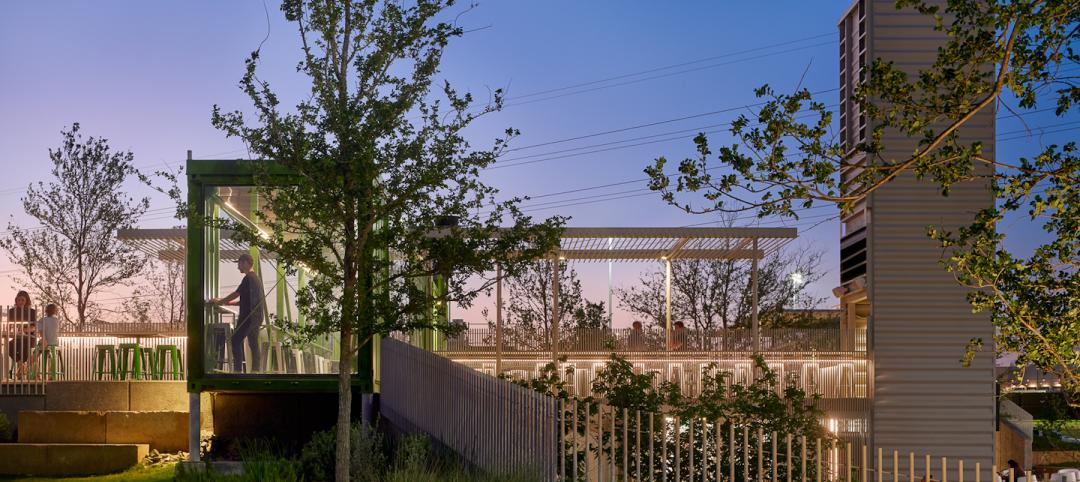The Executive Committee of top international design firm Perkins Eastman is pleased to announce that Rohit Saxena, AIA, LEED AP, has joined the firm’s Mumbai office as a Principal. Saxena joins with more than 30 years as a national and international leader in the design, planning, and management of complex technology-driven projects.
Principal and Managing Director of the firm’s Mumbai office Aaron Schwarz FAIA says of Saxena, “Rohit Saxena brings valuable expertise in many building types, but especially the laboratory and science environments that are critically important as India’s higher education, healthcare, and pharmaceutical sectors continue to grow.” Schwarz continues, “Perkins Eastman is proud to be able to further strengthen the firm’s investment in India and to deploy Rohit’s global expertise locally.”
Saxena joins Perkins Eastman from the Mumbai office of HOK. As Managing Director, Saxena was responsible for directing its international operations and interests in India, while his design experience focused on master planning and design for higher education, residential, and office/commercial projects. His previous experience in the United States concentrated in the design of higher education environments, particularly with an emphasis on science teaching and research buildings with complex technological and programmatic requirements, such as facilities for biomedical research, molecular biology, and engineering and transportation technology.
Saxena received his master of architecture degree, with a specialty in advanced building technology, from the State University of New York at Buffalo. He received his bachelor of architecture degree from the School of Planning and Architecture in New Delhi, India. He is a member of the American Institute of Architects (AIA); the Society of College and University Planners (SCUP); and the Indian Society of Heating Refrigeration, and Air Conditioning (ISHRAE). Saxena is a LEED-accredited professional and is a registered architect in the state of Georgia, as well as India. He presents regularly on science research and teaching buildings, higher education, sustainability, and engineering at industry conferences.
About Perkins Eastman
Perkins Eastman is among the top design and architecture firms in the world. With 700 employees in 13 locations around the globe, Perkins Eastman practices at every scale of the built environment. From niche buildings to complex projects that enrich whole communities, the firm’s portfolio reflects a dedication to inventive and compassionate design that enhances the quality of the human experience. The firm’s portfolio includes education, science, housing, healthcare, senior living, corporate interiors, cultural institutions, public sector facilities, retail, office buildings, and urban design. Perkins Eastman provides award-winning design through its offices in North America (New York, NY; Boston, MA; Charlotte, NC; Chicago, IL; Pittsburgh, PA; San Francisco, CA; Stamford, CT; Toronto, Canada; and Washington, DC); South America (Guayaquil, Ecuador); North Africa and Middle East (Dubai, UAE); and Asia (Mumbai, India, and Shanghai, China).
Related Stories
Building Team | Jul 13, 2022
The YIMBY movement emerges as valuable advocate for affordable housing
Over the past few decades, developers grew accustomed to nothing but staunch opposition to dense affordable housing project proposals.
Energy | Jul 13, 2022
Electrification of buildings, new and old, furthers environmental responsibility and equity
It’s almost a cliché in our industry, but nonetheless: The greenest building is the one that is already built.
Building Team | Jul 13, 2022
Austin’s newest entertainment and hospitality complex has been made from repurposed shipping containers
A new entertainment and hospitality complex in Austin, The Pitch, has been made out of repurposed shipping containers.
Codes and Standards | Jul 12, 2022
USGBC sets out principles for LEED’s future
The U.S. Green Building Council recently published a report containing principles outlining how LEED will evolve.
Building Team | Jul 12, 2022
10 resource reduction measures for more efficient and sustainable biopharma facilities
Resource reduction measures are solutions that can lead to lifecycle energy and cost savings for a favorable return on investment while simultaneously improving resiliency and promoting health and wellness in your facility.
Office Buildings | Jul 12, 2022
Miami office tower nears completion, topping off at 55 stories
In Miami, construction of OKO Group and Cain International’s 830 Brickell office tower is nearing completion.
University Buildings | Jul 11, 2022
Student life design impacts campus wellness
As interior designers, we have the opportunity and responsibility to help students achieve deeper levels of engagement in their learning, social involvement, and personal growth on college campuses.
Museums | Jul 11, 2022
Denmark opens a museum that tells the stories of refugees worldwide
Located on the site of Denmark’s largest World War II refugee camp, the new Refugee Museum of Denmark, FLUGT, tells the stories of refugees from the camp as well as refugees worldwide.
Codes and Standards | Jul 8, 2022
Inefficient supply chains, outdated project delivery systems hamper construction investment
Constructing and justifying the cost of physical assets such as a manufacturing plant is much more difficult than it was decades ago, according to a report by Steffen Fuchs, senior partner with McKinsey & Company.
Airports | Jul 8, 2022
Phoenix Sky Harbor Airport’s new terminal prioritizes passenger experience and sustainability
McCarthy Building Companies recently completed construction of the final concourse in Terminal 4 at Phoenix Sky Harbor International Airport.

















